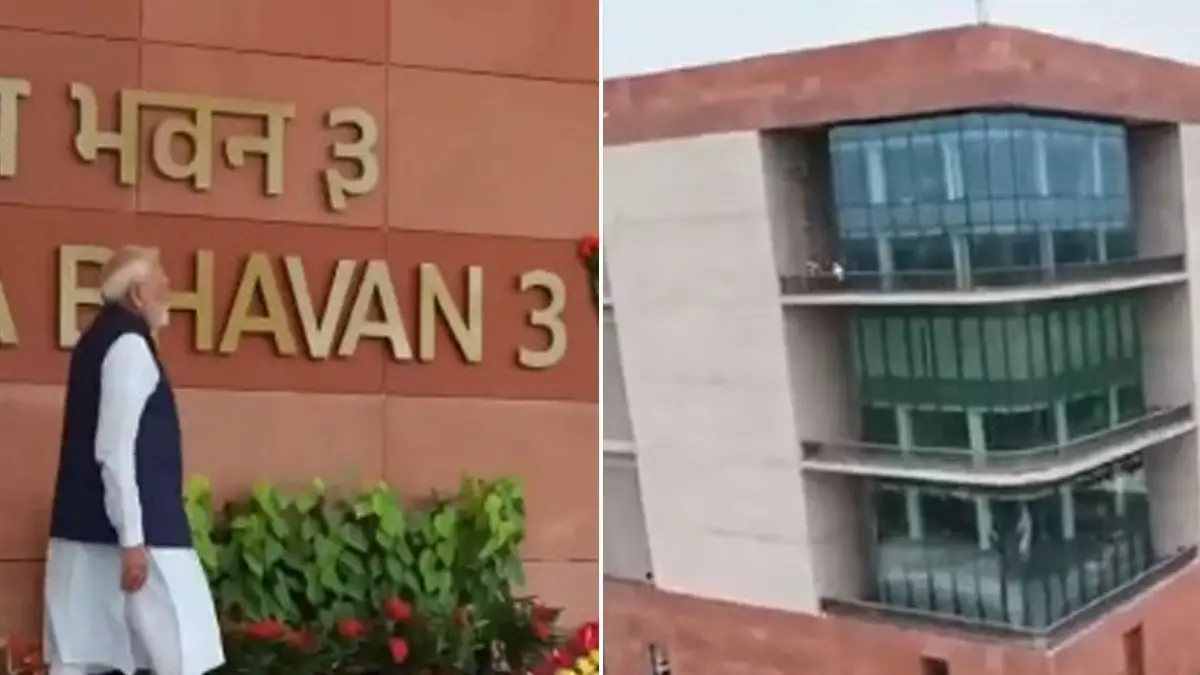As India’s Power Corridors Move to Kartavya Bhavan, a New Era of Public Administration in India Is on the Horizon
By Raghav Kalra
Copyright republicworld

New Delhi: India’s historic shift of its power corridors, from colonial-era South and North Blocks to state-of-the-art complexes like Executive Enclave and Kartavya Bhavan, is a symbolic leap towards a future-ready bureaucracy and governance. But as addresses change, so too must the soul of administration: the true test of transformation lies in uprooting colonial mindsets, instilling citizen centricity, and driving deep reforms in the bureaucracy’s ethos, transparency, and accountability. The Prime Minister’s Office (PMO) is set to relocate to the Executive Enclave, a gleaming facility designed to streamline governance and signal India’s break from colonial trappings. The move comes amid the massive Central Vista redevelopment, with Kartavya Bhavan already hosting the Ministries of Home Affairs and Personnel, and the Finance Ministry preparing to join the migration. With modern amenities, advanced security, and collaborative spaces, these new offices promise quicker file movement, reduced red tape, and faster policy response. Prime Minister Narendra Modi has captured this spirit, urging the PMO to become “an institution of service and the people’s PMO,” a catalyst for Change. Transforming North and South Block into the public museum “Yuge Yugeen Bharat Sangrahalaya” is more than an infrastructure upgrade, it’s an invitation to shed inherited hierarchies and opacity. Colonial buildings represented authority, exclusivity, and insulation; their repurposing should inspire an equally conscious effort to shed these traits from daily governance. Simply put: new buildings must nurture a new mind-set.India’s Ease of Doing Business ranking has improved from 130 in 2016 to 63 in 2023, but cumbersome red tape, slow digital adoption, and opaque processes continue to sap public trust and government agility. Only 3% of bureaucrats are reviewed based on measurable key performance indicators, and seniority-based promotions remain the norm over efficiency or innovation. Promotions tied to tenure, not talent, hinder the ability of the administration to respond to an empowered digital citizenry.To overcome these legacy issues, reforms like Mission Karmayogi and the adoption of a 360-degree appraisal system are promising developments. Mission Karmayogi aims to equip millions of public servants with technology-enabled learning, continuous skill upgrades, and real-time performance analytics. The new 360-degree mechanism means that officers will be evaluated not only by their superiors, but also by peers and the public, a major step towards accountability and transparency.With digitally integrated offices and better infrastructure, files will move faster, decisions will be swifter, and cross-ministerial collaboration should become standard. But this physical and technological modernization must be matched by making governance citizen-centric, more accountable, and relentlessly open.As North and South Blocks become heritage sites open to all, India must also shed the colonial hangover in its bureaucracy, substituting exclusivity with inclusiveness and secrecy with transparency. Global trends show that the most effective governments are not necessarily the biggest or the richest, but the most agile, tech-driven, and open to scrutiny. Singapore’s emphasis on skill over seniority, Scandinavian countries’ transparency and decentralization, and global best practices in open governance all offer lessons India can adapt.This shift in physical space should, therefore, be a catalyst for a shift in mindsets. The new address for India’s ministries must become synonymous with a new administrative soul, one that is contemporary, responsive, and driven by public service over process. Now, as power shifts from colonial relics to modern buildings, the government must ensure the change is felt in every citizen interaction, every file cleared, and every reform delivered



